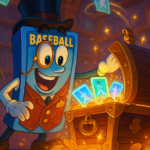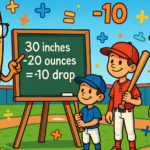Last Updated on October 8, 2024 by Matt Musico
If you’ve ever wondered which hitters are the Astros single season home run leaders at each position, then you’re in the right place. Outside of pitcher, each player had to qualify for the batting title. Each player also had to man their position for at least 100 games (or 75% of games played) for the season in question.
After you’re done checking this out, head over to the Astros’ all-time and single-season home run leaderboards.
Related: A Complete Guide to Single-Season (& Single-Game) HR Performances
Astros Single Season Home Run Leaders
Catcher: Jason Castro (2013) & Brian McCann (2017): 18 Home Runs
I’m going to be honest. When I think of Astros home run royalty, Jason Castro and Brian McCann aren’t the first two names that come to mind. That’s what makes MLB Daily Dingers a fun place, though.
The 2013 season was Castro’s first full campaign in the big leagues. From an offensive standpoint, it’s easily been his best. The .835 OPS he’s produced is still a career-high mark. His second-highest so far? A .799 OPS that he posted during 66 games in 2021.
Of these 18 dingers, 13 came at Minute Maid Park. Also, Castro only hit six after the All-Star break and could’ve surpassed 20 had he appeared in more than four September games.
Nobody will look at the 2017 Astros the same ever again. McCann is included in this sentiment, but his offensive numbers didn’t look much different than other recent years around that performance. In the two years before ’17, he had averaged 23 home runs and a .752 OPS. During this particular season, McCann slugged those 18 homers with a .759 OPS.
Furthermore, the backstop’s .850 road OPS was far superior to the .653 mark he produced at home. McCann hit either three or four homers in each of the first four months of the year. He then went homer-less in 11 August games before hitting a season-high five in September.
Pitcher: Dave Giusti, 1967: 3 Home Runs
There have been just 12 instances of an Astros pitcher hitting at least two homers in a season in franchise history. Dave Giusti is the only hurler to slug more than two.
While he eventually became a reliever to finish out his career, Giusti began his playing days as a starter. In 1967, he went 11-15 with a 4.18 ERA and 1.30 WHIP in 221.2 innings pitched. The hurler wasn’t a good hitter during his 15 big-league seasons, as evidenced by a .187/.235/.250 line.
Over 647 plate appearances, he racked up just 16 extra-base hits (10 doubles, two triples, and four homers). As we can see, three of his four career homers came in ’67. Six of his 10 career doubles came in ’66, and just three other extra-base hits came between 1968 and the end of his career in 1977.
First Base: Jeff Bagwell, 2000: 47 Home Runs

Jeff Bagwell is the Astros’ single-season and all-time home run king, so you knew he had to be on here somewhere. This performance was the third time he surpassed the 40-homer plateau over four years between 1997 and 2000.
What’s noticeable about his production in 2000 are the second-half numbers. He posted a .973 OPS with 23 home runs in 396 plate appearances before the All-Star break. After the midsummer respite, he returned to post a 1.122 OPS with 24 homers in 73 fewer trips to the plate.
Bagwell’s two best months of the year happened consecutively in July and August. Houston went just 28-26 during this span, but in 236 plate appearances, the first baseman slashed .363/.475/.763 with 22 homers, 55 RBI, and 55 runs scored.
Second Base: Jose Altuve, 2019 & 2021: 31 Home Runs
Jose Altuve is already among MLB’s postseason home run leaders thanks to the Astros’ consistent success since 2017. He’s also been among the league’s better hitters in the regular season, which is helping him climb up the franchise’s all-time home run leaderboard. He’s already at the top when thinking about Astros second basemen, though.
Between 2011 and 2017, Altuve posted two seasons of 20-plus homers, but his best output was 24 dingers. He did that for consecutive years from 2016-17. He’s hit at least 28 homers three times between 2019 and 2022, which includes the two 30-homer performances listed above.
He missed time early on in 2019, so 21 of his 31 dingers came after the All-Star break. Just the opposite happened in 2021, though — 20 of his 31 homers from that campaign happened in the first half.
Shortstop: Carlos Correa, 2021: 26 Home Runs

Entering 2023, consistent production has been a big part of Carlos Correa’s offensive game. He’s finished a season with at least 20 homers six times since debuting in 2015. His best of all from the standpoint of power came in his final year with Houston before jetting to the Minnesota Twins in free agency.
What’s interesting is that Correa was most productive at the plate when there were no outs. In that situation, he slashed .322/.382/.619 with 15 home runs, 15 doubles, and 32 RBI. That led to a 1.001 OPS, which far surpassed the numbers he produced with one out (.743) and two outs (.781).
He did get better as the game grew older, though. In innings 1-3, Correa owned a .757 OPS. That number went up to .883 in the middle innings before settling in at .935 during innings 7-9.
Third Base: Alex Bregman, 2019: 41 Home Runs
Alex Bregman’s second full year in the big leagues (2018) led to a .926 OPS with 31 homers, 51 doubles, and 103 RBI — all of which were new single-season career-high marks. He bested several of those numbers in 2018, including a 1.015 OPS with 41 homers and 112 RBI. Bregman finished fifth in AL MVP Award voting in 2017 and followed that up by finishing second in 2018 (he also won a Silver Slugger Award).
May was his most powerful month, as it resulted in 12 homers and 24 RBI in 123 trips to the plate. Bregman enjoyed hitting on the road in 2019, where 25 of his homers and 62 of his RBI were collected. He also loved producing with two outs — the third baseman slashed .287/.424/.611 with 16 homers and 46 RBI in that situation.
Astros Single Season Home Run Leaders
Left Field: Moises Alou, 1998: 38 Home Runs

Moises Alou was fresh off a breakout campaign for the Florida Marlins in 1997. It included his first 20-homer, 100-RBI performance, and it ended with a World Series ring. He took his talents to Houston and produced even better numbers with those 38 homers and 124 RBI, as well as a .981 OPS. He won his second (and final) Silver Slugger Award, along with earning a third-place finish in NL MVP voting.
His power numbers were just about identical at home (19 homers, 60 RBI) and on the road (19 homers, 64 RBI). What’s even crazier is he encountered a general power outage at the end. During the first five months, Alou hit at least seven homers four times. This included back-to-back double-digit performances in July (10) and August (10).
In September, he hit .293 with a .408 on-base percentage, but it was accompanied by a .390 slugging percentage because of eight doubles and no homers.
Center Field: Richard Hidalgo, 2000: 44 Home Runs
Richard Hidalgo had a similar career arc to Ensberg in the power department. During his nine years in the big leagues, just three of them finished with 20-plus homers. If we take out his 44-homer performance in 2000, his career-high mark would’ve been 28, which he did in 2003.
Hidalgo hit 28 of his 44 homers on the road, but his pre- and post-All-Star Game splits are quite similar. In the first half, he posted a .993 OPS with 23 homers, 21 doubles, and 61 RBI. Down the stretch, those numbers settled in at 1.063, 21, 21, and 61, respectively.
However, his month of September was positively off the chain. In his final 124 trips to the plate, the center fielder ended his season with a bang (no pun intended) by hitting .477/.532/.953 with 11 homers, 14 doubles, two triples, 32 RBI, and 38 runs scored.
Right Field: Kyle Tucker, 2021 & 2022: 30 Home Runs
Kyle Tucker has played in parts of five seasons for the Astros entering 2023. He’s played in at least 140 games in 2021 and 2022. He’s accumulated down-ballot AL MVP votes in both seasons, which has included 30 homers in each campaign. Tucker also added an All-Star Game selection and a Gold Glove to his collection in 2022.
In 2021, Tucker split his homer production exactly in half for his home/road and first-half/second-half splits, hitting 15 in each situation. He saved his best month for last thanks to a 1.130 OPS, eight homers, and 10 doubles in September/October.
September/October wasn’t his best month of 2022 from the standpoint of OPS, but he once again hit eight homers during that time frame. And once again, that was his most of any month during the year. Tucker hit 16 of his home runs against starting pitchers. Seven came in his first plate appearance facing them, and he hit another seven in his second turn through the order.
Designated Hitter: Chris Carter, 2014: 37 Home Runs

These 37 homers from Chris Carter were a single-season career-high mark for him…until he hit 41 for the Milwaukee Brewers to capture a share of the NL home run crown in 2016. His homer production was evenly spread out throughout a game, all while watching his overall production increase with each three-inning increment.
Through innings 1-3, he posted a .688 OPS with 11 homers. In the middle innings, Carter’s OPS went up to .806 with 12 homers. And in the latter portion of games, he posted a .893 OPS with 13 dingers. He also slugged 21 of his homers against teams with a winning record. The opponent he enjoyed facing the most? That’d be the Oakland Athletics, who he hit seven against.
At the start of July, he was hitting .184/.267/.406, which resulted in a .673 OPS. After two months in July and August, though, he improved his triple slash to .226/.299/.503, along with a .802 OPS.





Leave a Reply